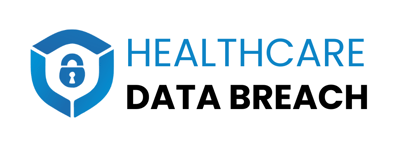Understanding the Laws That Protect Victims of Healthcare Data Breaches in the UK
In this blog post, we will explore the key laws that protect victims of healthcare data breaches in the UK, providing you with the knowledge to understand your rights and take action if your data is ever breached.
8/18/20243 min read


1. The UK General Data Protection Regulation (UK GDPR)
Overview: The UK GDPR is the cornerstone of data protection law in the UK. It governs how personal data is collected, stored, and processed, and it applies to all organizations, including healthcare providers, that handle personal information.
Key Protections for Victims:
Right to Be Informed: Individuals have the right to know how their data is being used and processed. If a breach occurs, organizations are required to inform the affected individuals, particularly if the breach poses a high risk to their rights and freedoms.
Right to Access: Victims can request access to their personal data held by an organization, allowing them to see what information has been compromised.
Right to Rectification: If the breached data is inaccurate or incomplete, victims have the right to request that it be corrected.
Right to Erasure (Right to be Forgotten): In certain circumstances, victims can request that their personal data be deleted, particularly if it was processed unlawfully.
Right to Compensation: The UK GDPR allows victims to seek compensation for material and non-material damages, such as financial loss or emotional distress, resulting from a data breach.
How It Helps Victims: The UK GDPR empowers victims by giving them control over their personal data and providing a clear legal pathway for seeking compensation when their data is mishandled.
2. The Data Protection Act 2018
Overview: The Data Protection Act 2018 complements the UK GDPR by providing additional details and regulations specific to the UK. It includes provisions that cover areas not fully addressed by the GDPR, such as law enforcement processing and national security.
Key Protections for Victims:
Health Data Protections: The Act provides extra safeguards for sensitive data, including health information, ensuring that healthcare providers adhere to stricter standards.
Enforcement and Penalties: The Information Commissioner’s Office (ICO) is empowered to enforce the Act, including the ability to investigate breaches and impose fines on organizations that fail to protect personal data.
How It Helps Victims: The Data Protection Act 2018 strengthens the legal protections available to victims by ensuring that healthcare providers are held to high standards of data protection, particularly regarding sensitive health information.
3. The Privacy and Electronic Communications Regulations (PECR)
Overview: The PECR works alongside the UK GDPR, focusing on electronic communications, including email, text messages, and cookies. It sets out rules for marketing, tracking, and communications.
Key Protections for Victims:
Consent for Communications: Organizations must obtain explicit consent before sending marketing communications via email or text, which includes safeguards against phishing attacks often used in data breaches.
Security of Electronic Communications: The PECR requires that communications are secure and that appropriate measures are in place to protect against unauthorized access.
How It Helps Victims: The PECR provides additional protection for victims by regulating electronic communications, a common vector for data breaches.
4. The Information Commissioner’s Office (ICO)
Overview: The ICO is the UK’s independent authority responsible for upholding information rights and enforcing data protection laws, including the UK GDPR and the Data Protection Act 2018.
Key Protections for Victims:
Investigation and Enforcement: The ICO has the power to investigate data breaches and take enforcement action against organizations that fail to protect personal data. This can include fines, public reprimands, and orders to improve data protection practices.
Reporting and Support: Victims can report data breaches to the ICO, which can provide guidance and take action on their behalf.
How It Helps Victims: The ICO serves as a watchdog, ensuring that organizations comply with data protection laws and providing victims with a mechanism to report breaches and seek redress.
5. Seeking Legal Action and Compensation
Overview: In addition to the regulatory protections, victims of healthcare data breaches have the right to take legal action against the organization responsible for the breach.
Key Protections for Victims:
Compensation Claims: Victims can file claims in court to seek compensation for damages caused by the breach, including financial losses, distress, and other impacts.
Legal Support: Victims can seek the help of legal professionals who specialize in data protection law to navigate the complexities of filing a claim.
How It Helps Victims: Legal action allows victims to hold organizations accountable and receive compensation for the harm they’ve suffered, providing a path to justice and recovery.
Empowering Victims Through Legal Protections
The laws in the UK provide robust protections for victims of healthcare data breaches, ensuring that their rights are upheld and offering avenues for redress. Understanding these laws is the first step in empowering yourself as a patient and a data subject. If you’ve been affected by a data breach, it’s important to know that you have the right to seek compensation and that there are legal mechanisms in place to support you.
By staying informed and proactive, you can protect your personal information and hold organizations accountable when they fail to safeguard your data. The legal frameworks in place are there to ensure that your privacy is respected and that justice is served when that privacy is violated.
Follow us on social media
Legal
© Healthcare Data Breach 2024. Healthcare Data Breach is a trading name of Thinking Smart Ltd company number 09496430. This website is operating in accordance to the privacy policy. Healthcare Data Breach connects clients to regulated no win no fee solicitors who deal with data breaches. We do not perform any legal services but simply connect you to a legal representative.
|
© 2024. All rights reserved.
